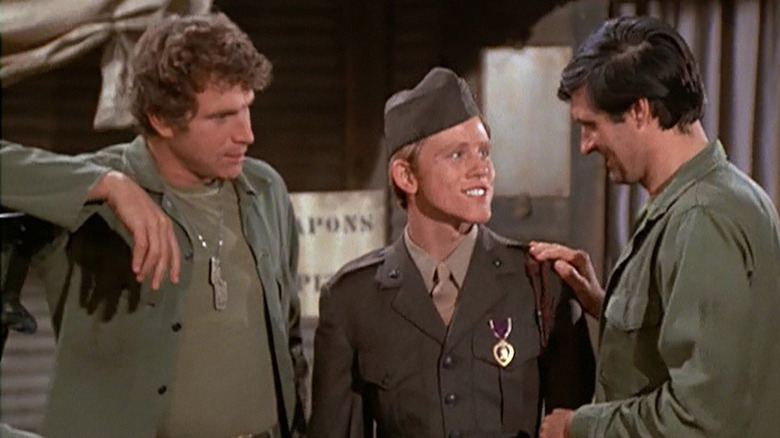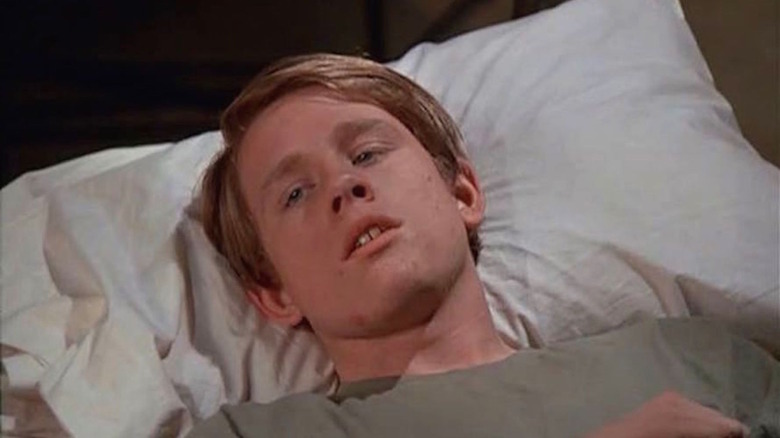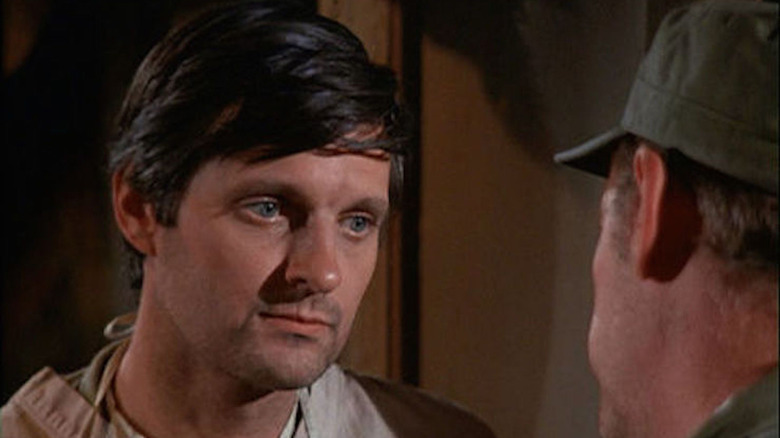The Transitional M*A*S*H Episode That Had Network Executives Steaming
It's easy to take the television version of "M*A*S*H" for granted. Based on Robert Altman's raucous New Hollywood comedy, the series gracefully sanded down the film's problematic edges and presented a more bracingly humanistic view of combat medical personnel struggling to maintain their sanity while watching one young man after another die on their operating tables. But once the show became a Nielsen ratings juggernaut and entered syndication, it was unavoidably consumed as couch potato comfort food just like every other hit sitcom. It was a first-rate homework diversion. College kids devised drinking games around it.
And yet while most episodes of "M*A*S*H" were strictly laugh riots, the writers, led at the outset by the great Larry Gelbart (who departed the series after Season 4), never lost sight of the war in which the show was set (nor the ongoing war it was often commenting on). This wasn't "Hogan's Heroes." These characters had lives and families back home to which they were desperate to return, and the cumulative effect of seeing so many of their peers make that return trip in a flag-draped coffin took its toll. Every now and then "M*A*S*H" reminded us of this, which is why critics and audiences loved it, and, at least during the first season, network executives loathed it.
There would be clashes between the creatives and the suits throughout the series run, but one of the most crucial battles was fought early on when the show was at its most vulnerable.
Death and the network sitcom
"M*A*S*H" belongs to a vaunted class of beloved long-running sitcoms (like "Cheers" and "Seinfeld") that flirted with cancellation during their first season. It was ultimately saved by the critics and seven Primetime Emmy nominations, but the show's slippery tone confounded the higher-ups at CBS.
Early in the first season, the show wisely sought to hook viewers by letting its hugely appealing cast goof off and flout authority with aplomb. Alas, it was still struggling to catch on when its jarring 17th episode arrived. Titled "Sometimes You Hear the Bullet," it depicted the first instance of the characters failing to save a wounded soldier. As Alan Alda recalled in a 2022 interview with The New York Times, this might've been the series' turning point:
"[I]n that show, a friend of Hawkeye's shows up among the wounded, and he dies on the operating table. That's the moment where McLean Stevenson [as Lt. Col. Henry Blake] says: 'There's two rules in war: Young men die, and then Rule 2 is there's nothing you can do about it.' Something like that."
As noted in the Times' article, the actual quote is this: "There are certain rules about a war. And rule No. 1 is young men die. And rule No. 2 is, doctors can't change rule No. 1." It's a sobering moment that broke up what had generally been a booze-fueled, skirt-chasing comedy broken up by the occasional (successful) surgery. This didn't play well with the suits. "The network was furious about this," said Alda. "Some guy in charge of programming said, 'What is this, a situation tragedy?'
'The more popular you get, the less they complain'
This is a moment where a less risky showrunner might play it safe for the sake of the series' future. But Gelbart, who'd won a Tony for writing the book of "A Funny Thing Happened on the Way to the Forum" a decade prior, had too much artistic integrity to go that route. He gambled that the critical adulation would buy them a second season, at which point their audience would start to grow and the network would clam up. He was right. As Alda told the Times, "The more popular you get, the less they complain."
It was an important lesson to learn, especially for that era of television. After a 24-episode season, your audience has a defined set of expectations, which makes it very difficult to veer off course further down the road. I can't prove it, but an episode like "Sometimes You Hear the Bullet" could very well be the one that knocks people sideways and prompts the once-coveted water-cooler conversation (which has been replaced by social media chatter). That's the moment viewers know you're for real. It's what makes them come back for more.
That might've been the moment "M*A*S*H" truly became "M*A*S*H," the one that bonded us to Alda's "Hawkeye" Pierce, and kept us watching for eleven seasons until the bittersweet final episode. It's why, when we can't sleep and need a half-hour catharsis, we fire up whatever streaming service houses the series this month (it's currently Hulu/Disney+), and hang with our friends at the 4077th. Never take something as magnificent as "M*A*S*H" for granted.


